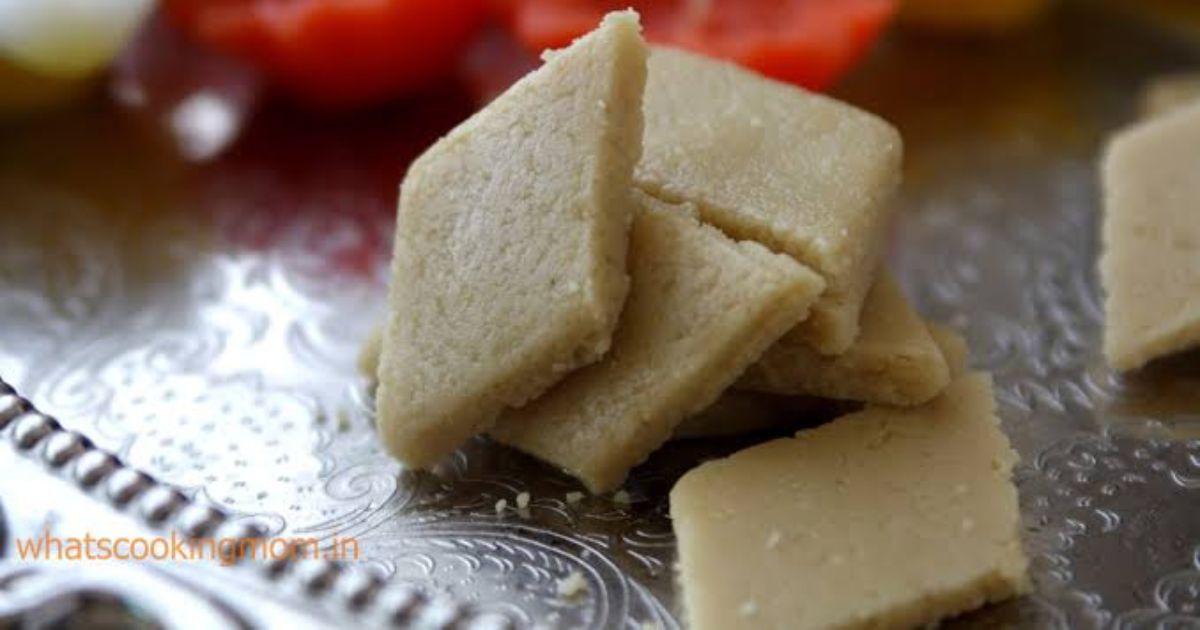
Fasting is an ancient tradition that exists across different cultures and religions, often involving strict food choices. In India, fasting is deeply rooted in religious practices such as Navratri, Ekadashi, Karva Chauth, Shivratri, and many others. During these fasts (or “vrats”), people often avoid regular food and instead consume special fasting-friendly ingredients like sabudana, fruits, milk, and dry fruits. This leads to an interesting question for many — can we eat kaju katli in fast? Let’s dive deep into understanding the context, religious perspectives, health aspects, and practical advice regarding this query.
Understanding Kaju Katli
Kaju Katli, also known as Kaju Barfi, is a popular Indian sweet made primarily from cashew nuts (kaju) and sugar. The basic ingredients include:
- Cashew nuts
- Sugar
- Water
- Sometimes, ghee (clarified butter)
- Cardamom for flavor
- Edible silver foil (varak) for decoration
The simplicity of its ingredients might make it seem suitable for fasting. After all, cashews are dry fruits, and sugar is usually permitted during fasts. But the answer is not always straightforward.
Can We Eat Kaju Katli in Fast?
The direct answer is: Yes, you can eat kaju katli during most Hindu fasts, but there are some important considerations based on the type of fasting and personal beliefs.
1. Ingredients Matter
When considering if kaju katli is allowed, you must check the ingredients carefully. During vrat or fasting, certain foods like grains, pulses, and specific processed foods are restricted. Traditional kaju katli made purely from cashew nuts, sugar, and ghee is generally permissible.
However, if the kaju katli contains additives like:
- Corn flour (sometimes used as a thickener)
- Milk solids (which are sometimes avoided in strict fasts)
- Artificial flavoring agents
then it may not be considered pure enough for fasting purposes. Always check the packaging if you are buying from a store or clarify the ingredients if purchasing from a sweet shop.
2. Homemade Kaju Katli vs Store-Bought
Homemade kaju katli is the safest option for consumption during fasting because:
- You control the ingredients.
- You ensure there is no contamination with forbidden grains or flours.
- You can avoid preservatives or artificial flavors.
Store-bought kaju katli, on the other hand, may contain ingredients or additives that are not fasting-compliant unless it is specifically labeled “Vrat Special” or “Fasting Friendly.”
3. Religious Variations
Different fasts have different rules depending on the religious sect, region, and the deity being worshiped:
- Navratri Fasting: Kaju katli is usually permitted. Dry fruits are a staple during Navratri fasts.
- Ekadashi Fasting: More strict. Sometimes only fruits and milk are allowed, and sweets might be avoided.
- Maha Shivratri: Cashews and sweets like kaju katli are generally allowed if made with fasting-allowed ingredients.
- Karva Chauth: More relaxed; sweets are often eaten after breaking the fast, and kaju katli fits perfectly.
Thus, it’s always best to confirm the fasting rules for your specific vrat.
Health Benefits of Eating Kaju Katli During Fasting
While the main focus of fasting is spiritual, taking care of your body is also important. Here’s why kaju katli can be a smart choice during a fast:
1. Energy Booster
Cashews are rich in healthy fats and calories. Eating a small portion of kaju katli can provide an instant boost of energy, especially during a long fast when your body needs a quick energy source.
2. Rich in Nutrients
Cashews offer important nutrients like:
- Magnesium
- Zinc
- Iron
- Vitamins E and K
- Healthy fats
Consuming kaju katli provides not just sweetness but also nutritional support during fasting.
3. Satisfies Sweet Cravings
Fasting often makes people crave sweets. Instead of consuming processed or heavy sweets, a piece of kaju katli can satisfy the craving in a relatively healthier way.
4. Easy to Digest
Compared to heavy, grain-based sweets, kaju katli is lighter and easier to digest, making it a good option during fasting.
Things to Keep in Mind While Eating Kaju Katli in Fast
While kaju katli can be consumed during fasts, moderation and caution are key:
1. Portion Control
Even though kaju katli is beneficial, it is calorie-dense. Overeating can lead to:
- Weight gain
- Upset stomach
- Lethargy
Stick to 1-2 pieces in a serving.
2. Sugar Content
People with diabetes or those trying to control their blood sugar levels should be cautious because kaju katli is high in sugar.
3. Allergies
Some individuals are allergic to nuts like cashews. If you have a nut allergy, it is best to avoid kaju katli altogether during fasting.
4. Freshness
Ensure the kaju katli is fresh. Stale sweets can lead to food poisoning, especially when your digestive system is more sensitive during fasting.
How to Make Fasting-Friendly Kaju Katli at Home
If you want to be 100% sure that your kaju katli is suitable for fasting, here’s a simple recipe:
Ingredients:
- 1 cup cashew nuts
- ½ cup sugar
- ¼ cup water
- 1 teaspoon ghee (optional)
- Edible silver foil (optional)
Method:
- Grind the cashews into a fine powder without over-grinding (to avoid releasing oils).
- In a pan, dissolve sugar in water and cook to a one-string consistency.
- Add the cashew powder and stir continuously on low flame.
- When the mixture starts leaving the sides of the pan, remove it.
- Let it cool slightly, knead gently into a soft dough.
- Roll out and cut into diamond shapes.
- Optionally, decorate with edible silver foil.
This homemade version is completely fasting-compliant!
Alternatives to Kaju Katli During Fasting
If you are unable to find fasting-approved kaju katli, you can opt for:
- Makhana Kheer (fox nut pudding)
- Sabudana Khichdi
- Dry Fruit Laddoos (made without grains)
- Fruit Chaat
- Singhare ka Halwa (water chestnut flour sweet)
These options are also delicious and suitable for fasting.
FAQs About Eating Kaju Katli in Fast
Q1: Is kaju katli allowed in Jain fasting?
A1: Jain fasting rules can be stricter. While cashews are generally allowed, sweets with processed sugar might not be. Always confirm based on your community rules.
Q2: Can we eat kaju katli during Navratri fast?
A2: Yes, pure kaju katli without added grains or flour is allowed during Navratri.
Q3: Can diabetic people eat kaju katli during fasting?
A3: Only in small quantities, if at all, due to its high sugar content. Consult your doctor.
Q4: What is a safer alternative if unsure about kaju katli’s ingredients?
A4: Dry fruits, fruits, and homemade fasting recipes are safer alternatives.
Conclusion
In summary, the answer to can we eat kaju katli in fast is a big YES, provided you are mindful of the ingredients and preparation method. Traditional kaju katli made only with cashew nuts, sugar, and ghee is generally acceptable during most fasts. However, it is crucial to be cautious about additives, portion sizes, and individual health conditions. Preparing kaju katli at home ensures purity and compliance with fasting rules.
Fasting is both a spiritual journey and a test of discipline. Enjoying a piece of sweet kaju katli can make this journey sweeter, but always remember — moderation and mindfulness are key!





